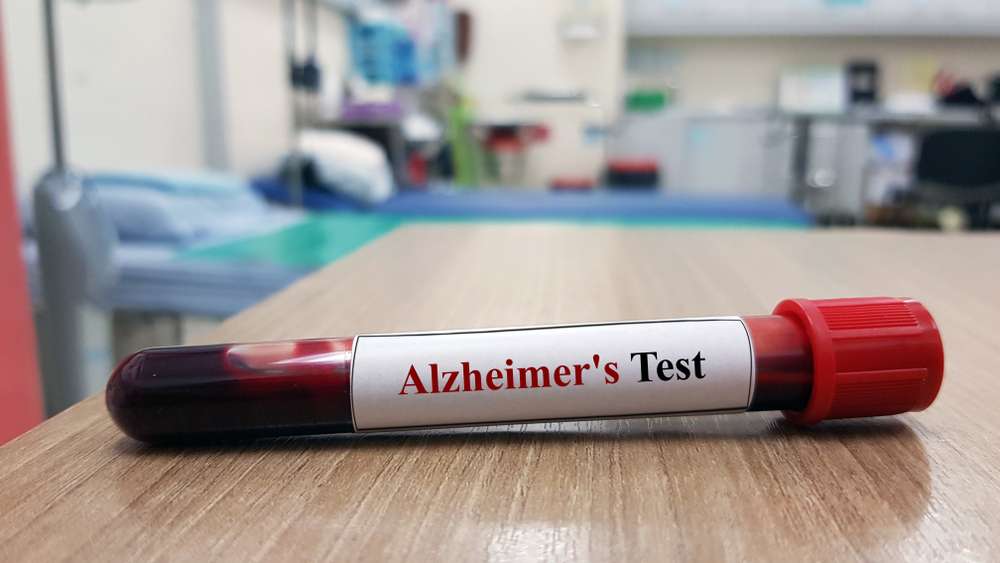Unveiling the Potential of Focused Ultrasound: A Game-Changer in Alzheimer’s Treatment

In a significant leap forward in the quest to address Alzheimer’s disease, scientists have introduced a groundbreaking approach that has the potential to redefine treatment strategies for this debilitating condition. This cutting-edge method involves the utilization of focused ultrasound to temporarily breach the formidable blood-brain barrier – a semi-permeable membrane traditionally impeding the entry of therapeutic molecules into the brain. Dr. Ali R. Rezai, a distinguished neuroscientist and the lead author of a recent study, emphasizes the critical importance of overcoming the challenges posed by this barrier. The blood-brain barrier, known for restricting more than 98% of drugs, including essential anti-amyloid monoclonal antibodies crucial for Alzheimer’s treatment, has long been a formidable obstacle in the field of neurology.
Dr. Rezai’s research focuses on the transformative potential of focused ultrasound, a minimally invasive outpatient technology that doesn’t involve surgery. By temporarily opening the blood-brain barrier, this method offers a breakthrough in enhancing access for therapeutic agents like anti-amyloid antibodies. The study, conducted under Dr. Rezai’s guidance, demonstrated promising results, revealing a 32% reduction in beta-amyloid plaques after combining focused ultrasound with antibody treatment. This development signals a significant stride in the pursuit of effective Alzheimer’s treatments and opens new avenues for exploring the synergy between focused ultrasound and innovative therapeutic interventions. Overcoming the limitations imposed by the blood-brain barrier presents a promising avenue for advancing Alzheimer’s research and fostering hope for improved treatment outcomes.
Focused Ultrasound: A Non-Invasive Marvel
Dr. Rezai’s study showcases the efficacy of focused ultrasound, a non-invasive outpatient technology that opens the blood-brain barrier temporarily. Unlike conventional surgical procedures, this approach offers a minimally invasive solution, allowing increased access for anti-amyloid antibodies. The study implemented monthly infusions of aducanumab, a significant Alzheimer’s drug, immediately followed by focused ultrasound to open the blood-brain barrier in regions with high amyloid-beta plaques. Astonishingly, after six months of this combined treatment, there was an average reduction of 32% in beta-amyloid plaques in the brain areas where the barrier was opened.
Optimizing Treatment Strategies for a Promising Future
The research not only confirms the anticipated increased clearance of antibodies with blood-brain barrier opening but also instills hope for the future of Alzheimer’s treatment. The next phase of investigations aims to combine lecanemab, a newly FDA-approved antibody for Alzheimer’s, with blood-brain barrier opening. Lecanemab, administered every two weeks for 18 months, focuses on reducing beta-amyloid in the brain and slowing disease progression. Dr. Rezai envisions exploring whether combining this antibody with blood-brain barrier opening can further accelerate the clearance of beta-amyloids in a shorter timeframe.
Expert Perspectives: A Ray of Hope Amid Challenges
Renowned experts in neuroscience, including Dr. Karen D. Sullivan, a board-certified neuropsychologist, and Dr. Jennifer Bramen, a senior research scientist, express enthusiasm for this innovative approach. Dr. Sullivan acknowledges the challenges posed by the blood-brain barrier and applauds the use of focused ultrasound, emphasizing its non-invasiveness. Dr. Bramen sees the potential for focused ultrasound to become a versatile delivery system for various therapeutics, extending its applications beyond Alzheimer’s treatment.
The Road Ahead: Accelerating Alzheimer’s Research and Treatment
As the medical community delves deeper into ultrasound-based strategies for Alzheimer’s treatment, this breakthrough promises new horizons in therapy delivery. The results from Dr. Rezai’s study open avenues for larger clinical trials, paving the way for a transformative era in Alzheimer’s research. While challenges remain, such as potential side effects and the need for further studies, the prospect of utilizing focused ultrasound to navigate the blood-brain barrier heralds a promising future in the pursuit of effective Alzheimer’s treatments.
Lecanemab Approval: A Paradigm Shift in Alzheimer’s Drug Development
In tandem with the ultrasound breakthrough, the landscape of Alzheimer’s treatment has witnessed another significant development with the accelerated approval of lecanemab by the U.S. Food and Drug Administration (FDA). Jointly developed by pharmaceutical companies Eisai and Biogen, lecanemab represents a monoclonal antibody designed to address early Alzheimer’s disease. The approval has sparked both hope and concern within the medical community, given the drug’s potential to target the underlying disease process. However, this approval comes with scrutiny following reports of three deaths during the drug’s clinical trials, prompting a closer examination of lecanemab’s safety and efficacy.
Unpacking Lecanemab: A Monoclonal Antibody Against Amyloid Protein
Lecanemab, a member of the monoclonal antibody class, is a synthetic molecule crafted to mimic the immune system’s defense mechanisms. Its primary target is the amyloid protein, a key player in Alzheimer’s disease pathogenesis. Dr. Christopher H. van Dyck, lead author of the Phase 3 confirmatory Clarity AD clinical trial, underscores the significance of targeting beta-amyloid to potentially restore cognitive function and impede the decline associated with the disease.
Efficacy and Safety: Navigating the Clinical Landscape
The Clarity AD clinical trial, involving approximately 1,800 adults with early Alzheimer’s disease, provided crucial insights into lecanemab’s efficacy. Participants receiving lecanemab exhibited a 27% reduction in cognitive decline after 18 months compared to the placebo group. The trial also highlighted beneficial effects on biomarkers for amyloid and tau, supporting the drug’s potential disease-modifying properties. However, concerns have arisen regarding potential side effects, including infusion-related reactions and Amyloid-Related Imaging Abnormality (ARIA), which involves brain swelling or fluid buildup.
Balancing Risks and Rewards: Perspectives from Experts
Leading neurologists, including Dr. Ronald Petersen and Dr. Verna Porter, acknowledge the promising results of lecanemab in targeting amyloid plaques. Dr. Petersen emphasizes the drug’s engagement with the appropriate brain target and its potential for stabilization, though cautioning against expecting a complete cure. Dr. Porter delves into the risk evaluation process, highlighting the need for FDA scrutiny on bleeding events and potential warnings related to anticoagulant drug interactions. As the medical community grapples with these nuances, Dr. Heather Snyder from the Alzheimer’s Association heralds lecanemab’s results as the most encouraging in clinical trials for Alzheimer’s to date.
The Path Forward: Lecanemab’s Role in Shaping Alzheimer’s Treatment Landscape
As lecanemab enters the market, its approval marks a significant milestone in Alzheimer’s research and treatment. While uncertainties persist regarding long-term effects and broader applicability, the drug’s accelerated approval underscores the urgent need for innovative solutions in the battle against Alzheimer’s disease. Ongoing studies will delve into lecanemab’s real-world effectiveness and safety profile, shaping its role in the future Alzheimer’s treatment landscape amidst intense scrutiny and anticipation.

Related Topics:
- Walk Your Way to Wellness: How Picking Up the Pace Can Lower Your Diabetes Risk – Micro2media
- Psilocybin May Help Reduce Depression Symptoms in People with Cancer
- Comprehensive Review on Alzheimer’s Disease: Causes and Treatment – PMC
- Alzheimer’s & Brain Research Milestones | Alzheimer’s Association
